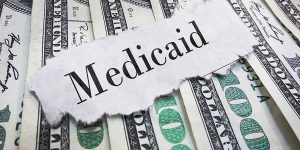The Office of Inspector General for the U.S. Department of Health and Human Services (HHS) keeps a public list of those it has barred from receiving any payment from its programs. This list of exclusion has grown to more than 14,000 individuals and entities since January 2017. A rather large list but what would one expect since U.S. taxpayers are losing more than $100 billion a year to Medicare and Medicaid fraud!
It turns out that this list is only a list. It does little to track or police the future endeavors of those it has excluded. Federal regulators do not proactively search for repeat violators based on the exclusion list, and fraudsters know this. With limited department resources, the exclusion list is too long for HHS to proactively monitor them. There is no centralized data source to check for violations either. If someone intentionally omits (or as fraudsters say “oops”) from applications that they are an “excluded owner or an owner with a felony conviction,” then there is no means of immediately identifying the false reporting.
Which means this list is only effective in stopping fraud if the fraudster does the right thing and self-reports their criminal histories. And we all know that is too much to ask of a fraudster when there is so much government money to steal! And stealing is what they are doing. Repeat offenders are all too common, according to state and federal officials. As Kenneth Nash, former assistant chief for healthcare fraud at the Justice Department, put it: “Someone who’s interested in cheating the system is not going to do the right thing.” Again, we are asking to much of a fraudster!
Todays Fraud Of The Day is based on article “KHN Investigation: The System Feds Rely on To Stop Repeat Health Fraud Is Broken” published by Kaiser Health News on January 29, 2023
The federal system meant to stop health care business owners and executives from repeatedly bilking government health programs fails to do so, a KHN investigation has found. That means people are once again tapping into Medicaid, Medicare, and other taxpayer-funded federal health programs after being legally banned because of fraudulent or illegal behavior.
In large part that’s because the government relies on those who are banned to self-report their infractions or criminal histories on federal and state applications when they move into new jobs or launch companies that access federal health care dollars.




